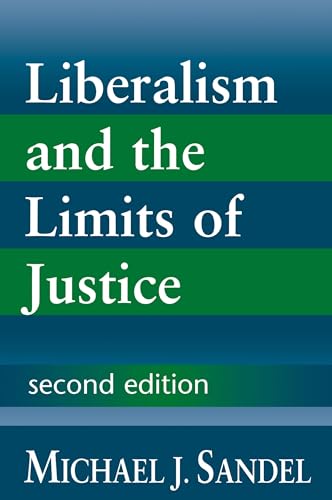Liberalism and the Limits of Justice
Michael J. Sandel
BOOK REVIEW

In the realm of political philosophy, few texts provoke as intense a reaction as Liberalism and the Limits of Justice by Michael J. Sandel. This seminal work dismantles the pillars of liberal political theory, challenging the core assumption that justice is inherently individualistic. With a razor-sharp intellect that can pierce through the façades of modern civil discourse, Sandel beckons us to confront the chilling question: what if our obsession with individual rights blinds us to deeper moral obligations?
In a world increasingly polarized by varied ideologies, Sandel stands as a beacon of critical thought, urging us to transcend our ideological echo chambers. He contends that our moral and political landscape is not just a collection of isolated preferences, but rather a deeply interconnected web of societal commitments. His arguments gracefully weave through complexities, compelling readers to grapple with their own convictions about justice, community, and personal responsibility. 🌍
Divided into thought-provoking chapters, the book offers a captivating exploration of how our liberal frameworks can inadvertently limit our understanding of justice. Sandel critiques the likes of Rawls and Nozick, notorious titans of liberalism, suggesting that their theories fall short of addressing what it truly means to live a good life within a community. You can practically feel the tension building as he articulates the heart-wrenching consequences of a society that prioritizes autonomy over fraternity. Does the liberal ideal of individualism truly serve the greater good, or does it instead foster an isolating culture? 🤔
The book is peppered with evocations of real-world dilemmas - from healthcare to education - grounding Sandel's theories in tangible societal challenges. This is not just abstract musings; Sandel's philosophy forces you to reconsider policies that affect real lives. His condemnation of moral neutrality in governance resonates profoundly; how can a society thrive if it neglects the moral fabric that binds its members together? By questioning the legitimacy of impartiality in justice, Sandel uncovers the often-unrecognized biases enshrined in liberal thought. It's an emotional rollercoaster as you begin to understand the weight of community-a concept seemingly dismissed by so many.
Readers, both fervent supporters and fierce critics, have praised and condemned Sandel's work with equal fervor. On one side are the believers who laud his call for a more engaged citizenry; their hearts pulse with excitement at the prospect of reanimating public discourse. Yet, on the other, staunch liberal purists bristle at his critiques, accusing him of undermining individual freedoms. The debates swirling around this book are nothing short of volcanic! 🌋 His ideas are not just dry philosophical arguments; they are incendiary topics igniting conversations in living rooms, on college campuses, and in political arenas alike.
In capturing the essence of Sandel's philosophy, it is crucial to appreciate the historical context that birthed this work. As the late 90s dawned, a palpable sense of disillusionment surrounded liberal ideals, particularly in the wake of global conflicts and rising inequalities. Sandel's timely intervention serves as a poignant reminder that the political landscape is as much about collective responsibility as it is about individual rights.
By the final pages, readers are left not only reflecting on their beliefs but also feeling empowered to act for a just society. What does it mean to be an engaged citizen? To think beyond oneself? Sandel's work unlocks a treasure trove of insights that ripple through our understanding of justice and the moral duties we hold. His legacy is apparent in the voices of contemporary thinkers and activists who continue to challenge the status quo, signaling that his ideas resonate just as powerfully today as they did over two decades ago.
Liberalism and the Limits of Justice is, unarguably, an intellectual tour de force. It provokes, inspires, and demands that you not only engage with its arguments but, more importantly, with the ethical implications of your actions in a shared society. Do yourself a favor-don't merely read this book; allow it to transform your outlook on justice, rights, and our responsibilities toward one another. The real question isn't whether you should read it, but whether you can afford to walk away uninformed. ✊️
📖 Liberalism and the Limits of Justice
✍ by Michael J. Sandel
🧾 252 pages
1998
#liberalism #limits #justice #michael #sandel #MichaelJSandel